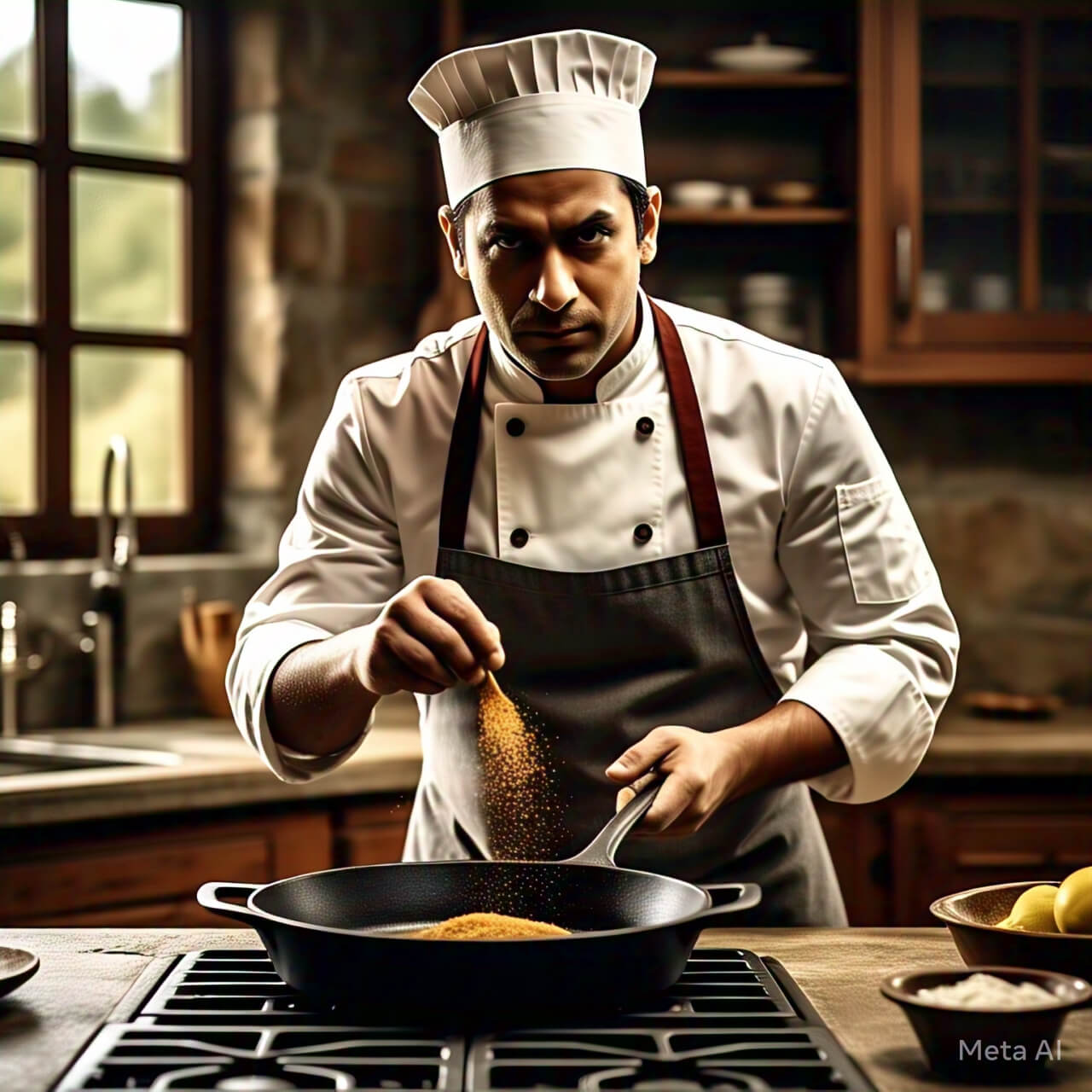Seasoning a cast iron skillet is an important process that keeps it non-stick, rust-free, and ready for cooking. When you season a skillet, you create a protective layer of oil that bonds with the metal. This makes cooking easier and extends the life of your pan. Without seasoning, cast iron can rust or stick, making food hard to cook and clean. The good news is that seasoning is simple and only needs a few basic steps. First, clean your skillet well. Then, apply a thin layer of oil and heat it in the oven or on the stove. The heat turns the oil into a smooth, hard coating. With proper care, a well-seasoned skillet gets better over time. Whether you have a new pan or an old one that needs refreshing, seasoning will keep it in great shape for years.

10 Easy Tips for Seasoning a Cast Iron Skillet
- Clean the skillet first.
- Dry it completely.
- Use a high-smoke-point oil.
- Apply a thin oil layer.
- Wipe off excess oil.
- Heat it upside down.
- Bake for an hour.
- Let it cool slowly.
- Repeat if needed.
- Cook fatty foods often.
1. Why Seasoning a Cast Iron Skillet is Important
Seasoning protects your skillet from rust and makes it non-stick. Without seasoning, food sticks to the pan, and moisture can cause rust. The process involves baking oil into the metal, creating a smooth, protective layer. This layer improves with each use, making cooking and cleaning easier. A well-seasoned skillet lasts for generations, so taking time to season it properly is worth the effort.
2. Choosing the Right Oil for Seasoning
Not all oils work well for seasoning. The best oils have a high smoke point, meaning they can handle high heat without burning. Good choices include vegetable oil, canola oil, flaxseed oil, or grapeseed oil. Avoid low-smoke-point oils like olive oil, as they can leave a sticky residue. A thin layer of the right oil ensures a strong, smooth seasoning.
3. How to Clean Your Skillet Before Seasoning
Before seasoning, remove any rust, dirt, or old food. Use hot water and a stiff brush or salt scrub. Avoid soap, as it can strip the seasoning. Dry the skillet immediately to prevent rust. If there’s rust, scrub it off with steel wool before re-seasoning. A clean surface helps the oil bond better with the metal.
4. Applying the Oil Correctly
Too much oil can make the skillet sticky. Use a paper towel to spread a very thin layer of oil over the entire pan, including the handle and bottom. Then, wipe off any excess with a clean cloth. A thin coat ensures even baking and a smooth finish.
5. Baking the Skillet for Perfect Seasoning
Place the oiled skillet upside down in a preheated oven (375°F–450°F) for about an hour. This lets excess oil drip off and prevents pooling. Heating the oil turns it into a hard, protective layer. Let the skillet cool in the oven to avoid sudden temperature changes that can damage the seasoning.
6. Stovetop Seasoning Method
If you don’t want to use the oven, you can season on the stove. Heat the skillet on medium, apply a thin oil layer, and let it smoke lightly. Wipe off excess oil and repeat 2–3 times. This method is quicker but may need more frequent re-seasoning.
7. Maintaining the Seasoning Over Time
After cooking, clean the skillet with hot water and a brush. Dry it well and apply a light oil coat to keep the seasoning strong. Avoid soaking or using harsh detergents. Cooking fatty foods like bacon also helps maintain the non-stick surface.
8. Fixing a Rusty or Sticky Skillet
If rust appears, scrub it off and re-season. For sticky residue, heat the pan and wipe off excess oil. Sometimes, stripping the old seasoning and starting fresh is the best solution.
9. Common Seasoning Mistakes to Avoid
Using too much oil, not heating enough, or using the wrong oil can lead to poor seasoning. Avoid cooking acidic foods (like tomatoes) in a newly seasoned pan, as they can break down the coating.
10. Benefits of a Well-Seasoned Skillet
A properly seasoned skillet cooks evenly, resists rust, and becomes more non-stick over time. It’s perfect for frying, baking, and even camping. With care, it can last a lifetime.

5 FAQs About Seasoning a Cast Iron Skillet
| Question | Answer |
|---|---|
| How often should I season my skillet? | Season when food sticks or the pan looks dull. |
| Can I use olive oil for seasoning? | No, it has a low smoke point and can become sticky. |
| Why is my seasoning sticky? | Too much oil was left on before heating. |
| Can soap ruin my seasoning? | A little soap is fine, but avoid harsh scrubbing. |
| How do I remove rust from my skillet? | Scrub with steel wool, rinse, dry, and re-season. |
By following these steps, your cast iron skillet will stay in great condition for years. Happy cooking.


